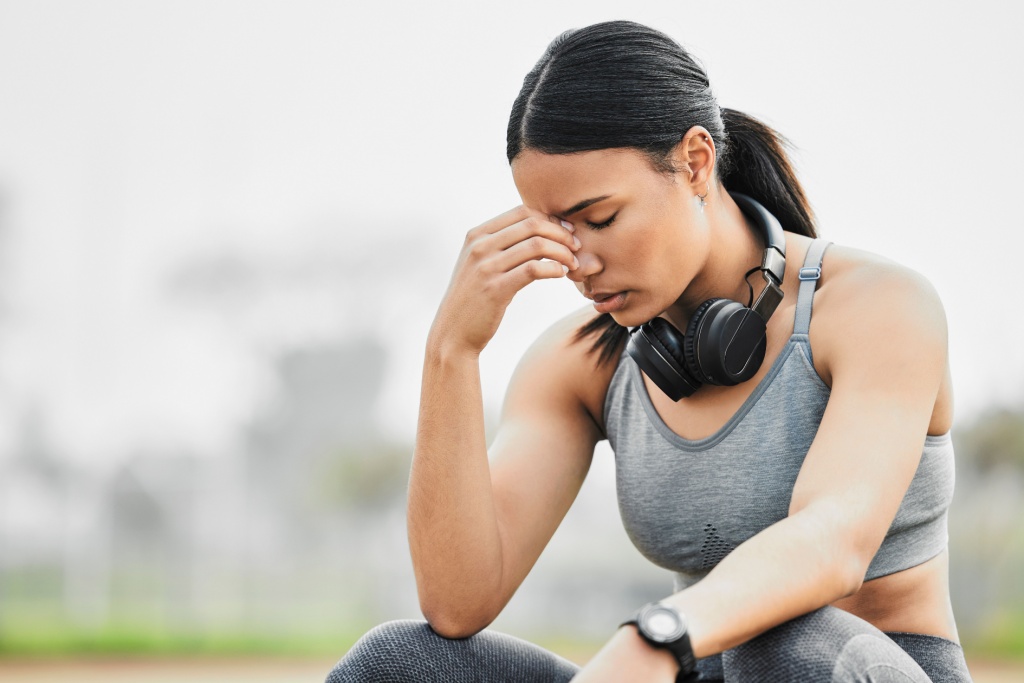There are plenty of things that can get in the way of a workout, especially near the end of the year when your calendar is full of social gatherings and the to-do list feels never-ending. But when the silly season gets a little too silly and you wake up feeling worse for wear, is exercise the perfect hangover remedy or the last thing your body needs?
What even is a hangover?
While several of the YogaFokus trainers choose not to drink because of how it makes them feel, and avoiding alcohol is always going to be the healthiest option for your body, we know that raising a glass is part of socialising and celebrating for many people.
However, when you’ve raised a few too many glasses, your entire body can end up dehydrated, fatigued and inflamed, your digestion slowed, your gastrointestinal system irritated (hello nausea), and your sleep disrupted. A truly delightful concoction, and one of the reasons more people than ever are choosing to drink less.
Is “sweating it out” a real thing?
To cut to the chase – there’s no evidence to suggest that exercising can cure a hangover. You can’t “sweat out” the toxins. If you do notice an improvement in how you feel, you’re simply experiencing the usual feel-good, energising benefits of exercise that come as a result of endorphin production, increased circulation and potentially getting some fresh air.
Is working out hungover a good idea?
Although we love your enthusiasm, smashing out a workout when you’re hungover isn’t always in your best interests. It all comes down to the severity of your symptoms and how you feel. The four main things to consider are:
-
Energy: Although exercise can give you a short-term energy boost, if you’ve had a late night and are in sleep debt, your body needs sleep, rest and recovery far more than it needs a workout right now.
-
Cognitive function: A hangover is often accompanied by brain fog, dizziness and an overall decrease in cognitive function which can all increase your risk of injury during a workout.
-
Dehydration: Alcohol is a diuretic, meaning it causes you to pee more, lose fluids and end up dehydrated. Adding a sweaty workout to the mix and losing even more fluid isn’t the best idea.
-
Nausea: If your stomach is churning, take the day to rest and rehydrate.
If your hangover is only mild and you’re feeling up to exercising, here’s what we recommend to put your health and wellbeing first:
-
Eat something with protein and carbs before you exercise. Contrary to popular belief, the Cleveland Clinic explains that a heavy, greasy meal can add even more stress to your digestive system. If you don’t have much of an appetite, a banana is a nutritious, easy to digest option!
-
Drink plenty of water before and after you exercise – more than you usually would to help replenish your body. Electrolyte drinks can also support your recovery, or foods such as watermelon that are high in water. Even if you’re tired, try to avoid coffee as it can exacerbate the dehydration and its acidic nature can irritate your stomach even more.
-
Choose a form of exercise that is simple and low-intensity such as a walk, yoga or gentle workout. Leave the heavy lifting, balance exercises and coordinated movements for another day when your energy levels and cognitive function are all back to normal.
-
Avoid anything that will make you sweat excessively. Losing more fluid is the last thing you need!
-
Your body needs rest so give yourself permission to take it easy. Even if a tough workout gives you a big endorphin rush and a burst of alertness at the time, exhausting yourself may make you feel worse hours later or in the days to come.
-
If you can move your body outside in nature, a dose of fresh air can work wonders.
YogaFokus is about so much more than your workouts
Feel your best – inside AND out
The best way to cure a hangover will always be to avoid alcohol altogether, but however you plan on celebrating this festive season, always drink wise, look after yourself, and know that you don’t have to drink if you don’t want to.

